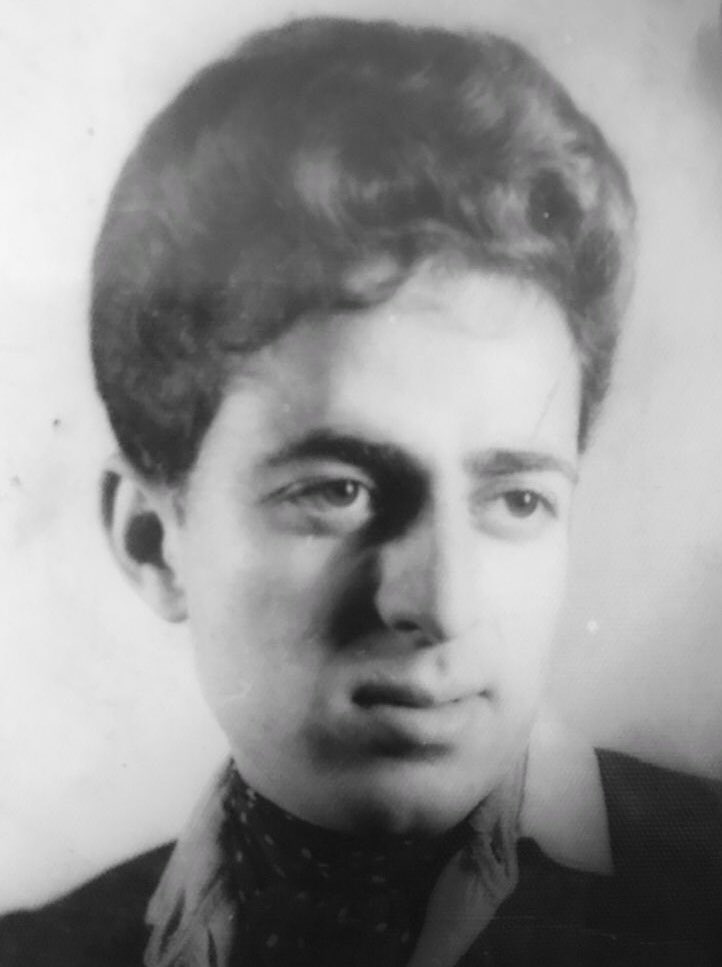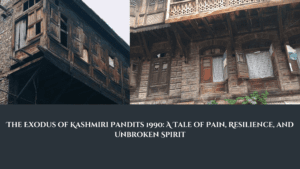Between 1988 and 1990, Kashmir faced a dark era of terrorism that claimed many innocent lives. Notable figures such as Tika Lal Taploo, Justice Neel Kanth Ganjoo, Satish Tikoo, Sarvanand Kaul Premi and his son, Girija Tikoo, Sarla Bhat, Prana Ganjoo, K.L. Ganjoo, and others were tragically murdered. Lassa Kaul was also a victim of this radicalism, his life cut short, adding to the many shattered dreams caused by terror.

Lassa Kaul’s Tragic Death
In the troubled history of Kashmir, Lassa Kaul stands out as a figure of strength and dedication. He was a key figure who opposed the insurgency, using his position and beliefs to make a difference. Kaul worked for both Doordarshan Srinagar and All India Radio during a time when Kashmir was on the brink of chaos. His life was tragically ended by those who feared his influence.
On February 13, 1990, Srinagar suffered a major loss when Lassa Kaul, the Director of Doordarshan Srinagar, was killed by JKLF terrorists. Loved and respected in the community, his murder shocked the city. His daughter, Sanjla Kaul, recalled that on that night, Lassa’s parents were anxiously waiting for him when they heard gunshots. His mother, overwhelmed with grief, collapsed and was deeply affected by her son’s death. Lassa was shot dead outside their home in Bemina, Srinagar, by terrorists from the Jammu and Kashmir Liberation Front (JKLF).
A Life of Professional Dedication
Lassa Kaul’s career in broadcasting was driven by a commitment to serving his community. As the Director of Doordarshan Srinagar and having worked for All India Radio, Kaul’s efforts coincided with one of Kashmir’s most challenging periods. Despite the violence and unrest, Kaul remained a beacon of integrity and professionalism. Known for his steadfast adherence to broadcasting ethics and refusal to bow to political pressures, Kaul’s leadership was marked by innovation and dedication to transparency.
Lassa Kaul launched public grievance programs that exposed corruption, showcasing his belief in the media’s power to hold the powerful accountable. These programs, which were crucial in a time of political and social upheaval, made him both respected and targeted. His work demonstrated a commitment to using media for positive change, despite the personal risks involved.
A Community Pillar and Controversy Surrounding His Death
Lassa Kaul was not just a professional but a beloved community member. His daughter described him as warm, charming, and genuinely interested in others. His bravery was evident during a bomb scare at All India Radio, where he prioritised the safety of others by personally inspecting the threat. This act of courage highlighted his dedication to both his personal and professional responsibilities.
The details of Kaul’s assassination are surrounded by controversy. There is a popular belief that some of his colleagues may have been involved, potentially by sharing information about Kaul’s movements with terrorists. Although this theory remains unconfirmed, it adds a layer of complexity to the tragedy and emphasises the need for a thorough investigation. Who else could have provided the exact information Of Lassa Kaul’s movements to the terrorists? As we know the modus operandi of terrorists using sleeper cells to target their selected people.
The Lassa Kaul Award and Its Discontinuation
The government honoured Lassa Kaul by establishing the “Lassa Kaul Award for National Integration,” an annual award given for the best program on All India Radio that promotes national unity. This special award was part of the Akashvani Annual Awards ceremony, which was last held in 2019 under the leadership of Shri Prakash Javadekar, the Union Minister of Information & Broadcasting.
Efforts to discontinue the Lassa Kaul Award began even before 2020. However, during Fayyaz Sheheryar’s tenure as Director General of All India Radio, he firmly opposed any moves to abolish the award. His strong stance ensured that the award continued throughout his time in office. Unfortunately, after Sheheryar retired in December 2019, the Akashvani Annual Award Ceremony was abruptly stopped for reasons that remain unclear.
The abandonment of the Lassa Kaul Award raises troubling questions about the priorities of India’s public broadcasting system. At a time when the nation is grappling with issues of national integration and combating extremism, the decision to discontinue an award that celebrated these very values seems counterproductive and shortsighted.
This decision reflects a broader trend of historical amnesia, where the sacrifices of individuals like Lassa Kaul are conveniently forgotten in the rush to move forward. This forgetting not only dishonours the memory of those who gave their lives for the nation but also deprives younger generations of role models and inspiration.
As we reflect on Lassa Kaul’s legacy thirty-four years after his martyrdom, it is clear that his story remains relevant and inspiring. His commitment to truth, his courage in the face of danger, and his unwavering belief in the power of media to effect positive change are qualities that are sorely needed in today’s world.





Pingback: The Untold Story of Kashmiri Pandits: Seven Centuries of Struggle and Survival - The Forgotten Exodus: The Tragedy of Kashmiri Pandits